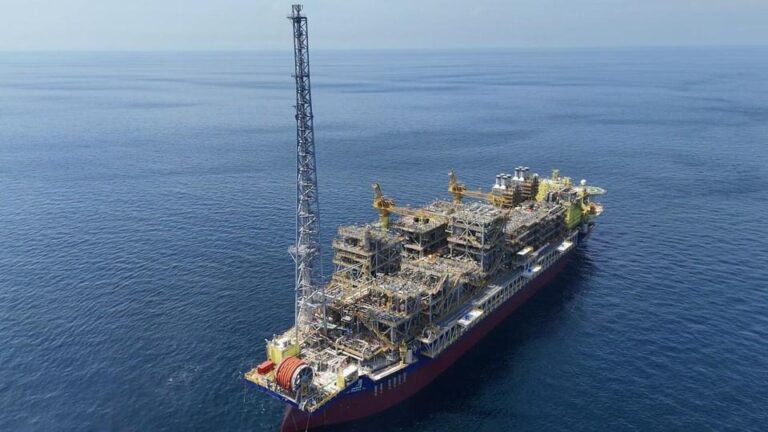
While the start of production was initially scheduled for 2025, the FPSO Maria Quitéria working in the Jubarte field produced its first oil on October 15. After a naming ceremony was held at Cosco Shipping Heavy Industry (Shanghai) Shipyard in China in April, the vessel left for Brazil in May and reached its destination on August 10, 2024.
The 156-meter tall and 333-meter-long FPSO is installed at a water depth of 1,385 meters. As explained by the Brazilian player, its ability to generate 100 MW of energy means it can supply power for a city of 230,000 inhabitants.
Boasting a capacity to produce 100,000 barrels of oil a day and process up to 5 million cubic meters of gas, the unit will be interconnected to eight producing wells and just as many injectors. According to Petrobras, the platform is equipped with technologies to reduce emissions with greater operational efficiency and cut operational greenhouse gas (GHG) emissions by around 24%.
Along with Baleia Anã, Cachalote, Caxaréu, Pirambú, and Mangangá fields, the 2001-discovered Jubarte field forms part of the Parque das Baleias integrated project. Five years ago, the Brazilian giant and the National Agency of Petroleum, Natural Gas and Biofuels (ANP) signed an agreement to extend the concession period until 2056 for Jubarte, which enabled the implementation of FPSO Maria Quitéria and complementary projects in the area.
Three other platforms operate in Parque das Baleias: P-57, P-58, and FPSO Cidade de Anchieta. Once Maria Quitéria starts operating at full capacity, it is anticipated to account for around 40% of the field’s production.
Earlier this week, Petrobras, Shell, and CNOOC signed three concession contracts for three blocks in Brazil’s Pelotas Basin acquired at the public session held by the ANP in December 2023.